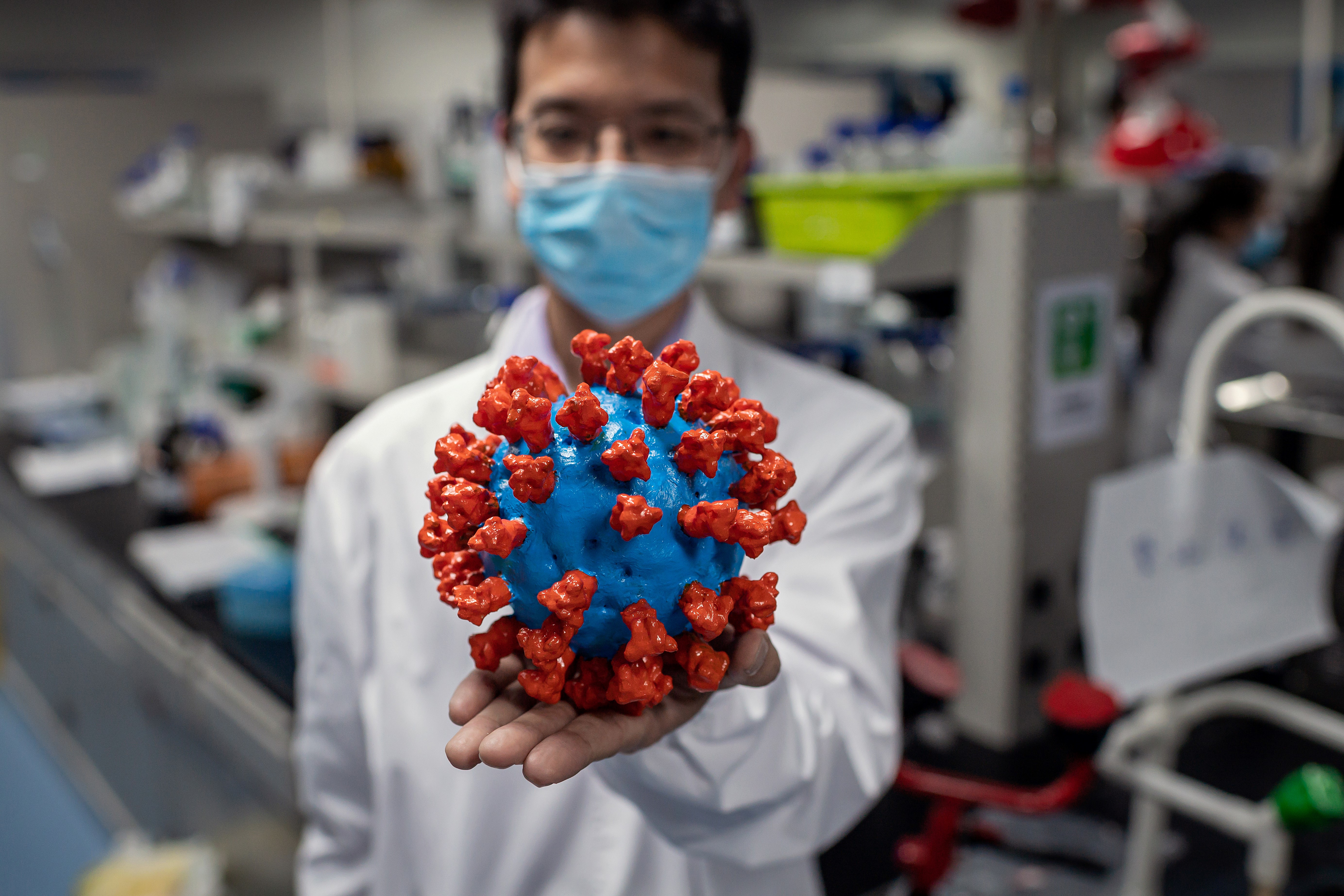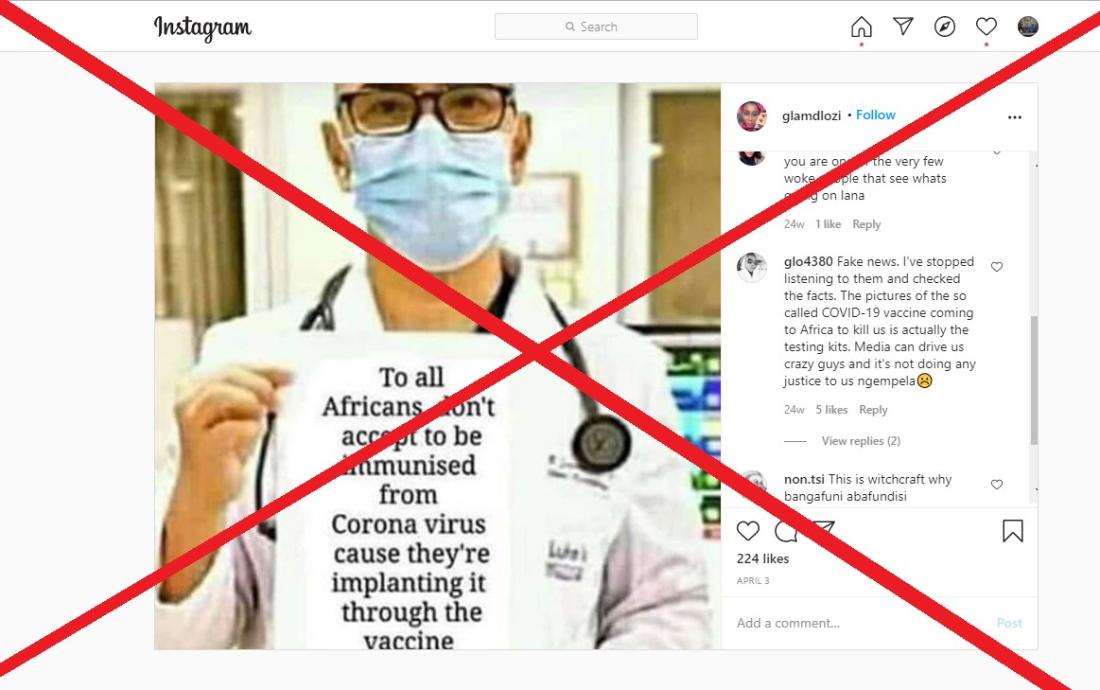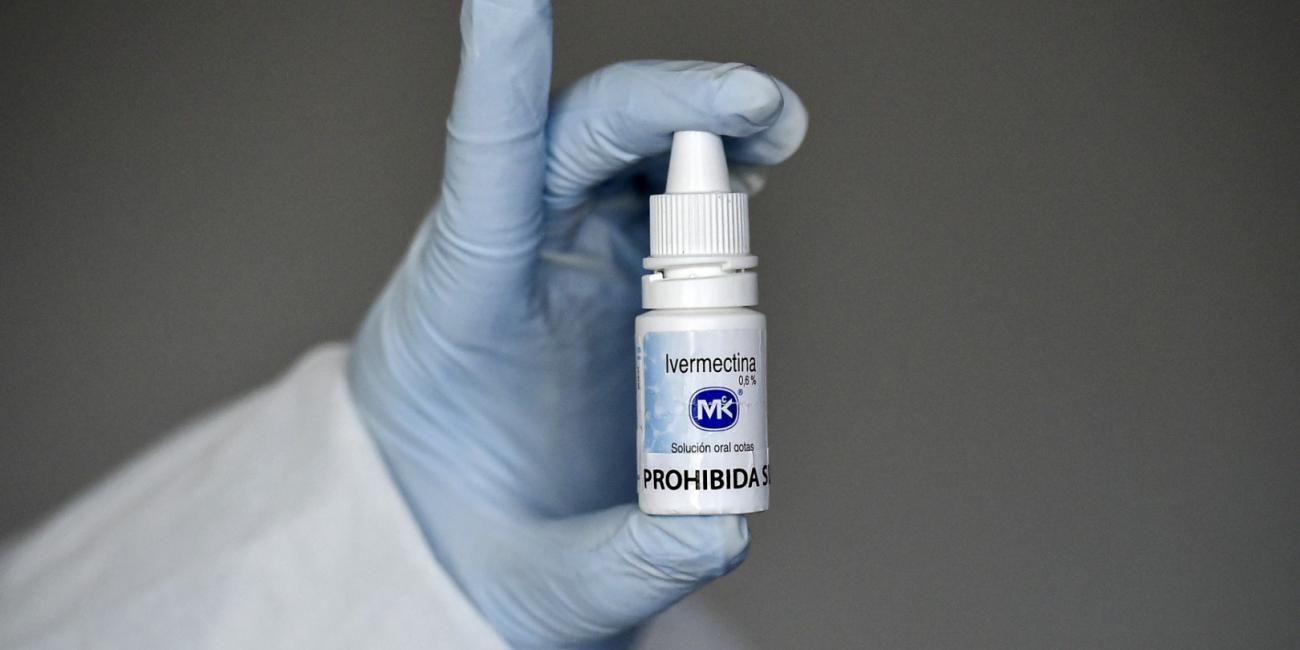
Doctored photo telling Africans to avoid Covid-19 vaccine circulates online
- This article is more than five years old.
- Published on October 12, 2020 at 16:34
- Updated on October 12, 2020 at 16:44
- 4 min read
- By Amanuel NEGUEDE, AFP Ethiopia
The image posted on April 3, 2020, was liked more than 200 times on Instagram.
It shows a doctor holding up a piece of paper reading: “To all Africans, don’t accept to be immunised from Corona virus cause they’re implanting it through the vaccine (sic)”.

Who is the man in the picture?
AFP Fact Check ran a reverse image search using Google Images and found a tweet published on the official account of radio station Leading Britain’s Conversation (LBC) on March, 19, 2020.
“I stayed at work for YOU! Please stay at home for US!”
— LBC (@LBC) March 19, 2020
A doctor in the Philippines has urged people to stay at home to help stop the spread of coronavirus. ⠀
⠀
? Dr. Rodney Jimenez | #Covid19 | #UKlockdown pic.twitter.com/ovuiEelAh6
This tweet reveals two important details. A mention in the top-right of the image credits the photo to a Dr. Rodney Jimenez. The word “Luke’s” is also visible on the doctor’s jacket.
Using the new details found in this image, AFP Fact Check found a tweet published by CNN Philippines, stating the doctor’s name, profession and the name of the hospital in the Philippines where he works.
Dr. Rodney Jimenez, cardiologist at St. Luke's Medical Center: If this pandemic happens again, we will be more prepared.
— CNN Philippines (@cnnphilippines) March 29, 2020
His photo holding up a sign that says 'I stayed at work for you, please stay at home for us' went viral https://t.co/sDo55hwVGt pic.twitter.com/7xnpj0CLqO
With the information provided in the tweet, we were able to locate Dr. Jimenez’s profile on the website of St. Luke’s Medical Center, Quezon City, Philippines, as well as his Facebook page, where he initially shared the picture. The post has been shared over 21,000 times since March, 18, 2020.
Virus in a vaccine?
Concerning the claim that the novel coronavirus can be “implanted” through the vaccine, Benjamin Neuman, Professor and Chair of the Biological and Science department at the Agricultural and Mechanical College of Texas, told AFP Fact Check there was no evidence to support the claim.
“We don't even know if injecting a person with SARS-CoV-2 would lead to Covid-19,” he said.
“The cells that the virus needs to reach in order to start an infection are along the inner lining of the lung and the inside of the intestine, and it is not clear how the virus could reach those cells or start an infection via the bloodstream.”
“The cell is a house and the virus spike protein (which binds to cells to allow infection, editor’s note) is like a key that unlocks the front door, so the virus can enter via the lungs,” he said.
Neuman explained that if it were transmittable through the blood, Covid-19 would also be a sexually transmittable disease, not only a respiratory one.
There are currently 42 candidate Covid-19 vaccines in clinical evaluation, with a handful tested in large studies involving thousands of people.
During vaccination, a patient is given a harmless form of a disease, which triggers an immune response to fight it. “This means that if the same disease is encountered again, the immune system has a ‘memory’ of the disease and is ready to quickly destroy it before you get sick and any symptoms can develop,” the British Society for Immunology says.
Shabir Madhi, professor of vaccinology at the University of Witwatersrand, Johannesburg, and member of the World Health Organization, explained three ways the potential Covid-19 vaccine would be administered and what it would require to be efficient.
He told AFP Fact Check that the first method uses a weakened or inactivated SARS-CoV-2 virus as the vaccine.
The second one would involve nucleic acid-based vaccines, which directly deliver genetic material coding for a segment of a protein only of the virus.
Lastly, he explained that there are vector-based vaccines, which uses a non-Covid virus (adenovirus family) to deliver genetic material coding for a protein.
Mistrust of vaccines
The belief that vaccines cause illness is commonly trumpeted by anti-vaxxers, who have falsely linked vaccines to plans to harm or even kill Africans and to secretly implant microchips into people’s bodies. In April, AFP Fact Check debunked false claims on social media that French microbiologist Didier Raoult had urged Africans “not to take the ‘Bill Gates’ vaccine”.
According to the US Centers for Disease Control and Prevention, vaccines -- like any medication -- can have side effects, but these are usually mild, such as a sore arm of light fever. Scientists have pointed out that anti-vaccine rumours may not be based on scientific evidence and that vaccines can protect from deadly diseases.
Contacted by AFP Fact Check, experts rejected the idea that an eventual Covid-19 vaccine would be used to infect people with the disease.
“This is very paranoid, bizarre misinformation that is likely to contribute to more Covid-19 deaths among anyone who is marginalized in general,” Neuman said.
According to the WHO, more than one billion children were vaccinated over the past decade, and immunisation prevents the death of 2-3 million children each year.
Copyright © AFP 2017-2026. Any commercial use of this content requires a subscription. Click here to find out more.
Is there content that you would like AFP to fact-check? Get in touch.
Contact us




